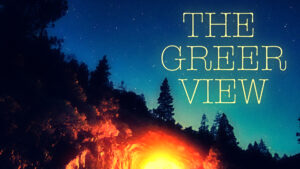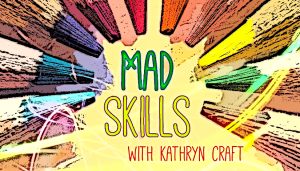Process
That was a big detour.
I haven’t been here for a while—for several years, actually. I’ve been away from most creative writing, too; since 2017, my time and my focus have been directed elsewhere. Given an existential crisis in American democracy and my professional background in policy and politics, I felt obligated to do what I could for that cause. So I’ve spent these past years strategizing, planning, writing, editing, teaching, organizing, listening, advocating, witnessing, testifying, leading, going to meetings (goodness, did I go to meetings), and many other things.
But I didn’t write anything that wasn’t political—fiction or nonfiction. And I really missed it.
The crisis is far from over, but some breathing space over the last year-and-a-half has given me a chance to evaluate how unbalanced my life has been without my creative writing practice. I’ve realized that I must come back to it.
But how?
After such a long period away, I knew I couldn’t just take my old WIP off the shelf, open it and waltz through it with a red pen. As I began this new phase of writing, I wasn’t confident about my skills. My craft was rusty. I could write you an op-ed about a wide variety of current events, but that’s not the same as creating a crisp dialogue, a riveting scene or just the right amount of tension in the right places in a narrative.
I needed a plan to bring myself back. So I created a short syllabus for myself, to ground me in craft again and return me to a place where writing creatively feels familiar once more.
This syllabus is one I believe will work for me. While I chose every resource based on my own needs and what I know about the writers/teachers involved, there are of course plenty of other excellent resources out there, as well as lots of ways to do this.
Here’s my program for getting back into my writing practice after years away:
Read More
During my prolific writing days, and even during my not prolific writing days, when I’d hear the term “writer’s block,” I believed it to be a self-indulgent myth. Either you were writing or you were not. You sit your ass in your chair and you write or you get up from your chair and decide you will not write.
I could give you a lot of reasons, excuses, lamentations for why I haven’t completed my next novel. I bet some of you know a lot of these reasons, excuses, lamentations, too, and likely 89.999% of them are valid. We can talk about how others may say that giving up writing for any length of time is for those who really aren’t dedicated to the craft, but that’s bull-taters. I sacrificed quite a lot for my writing in time, family, social life, etc, so I really don’t want to hear how I am not dedicated to my craft. I’ll guess many of you sacrificed much as well. Life can toss crappy curveballs and we sometimes must make decisions on what we feel is important, and sometimes the writing is not the more important thing: GASP! I know! I never thought I’d say that! Is this the eighth sign of the apocalypse?
Before the multi-year-slump, I could spit out a novel like it was nuttin’—doesn’t mean all of them were publishable but writing the words never was a problem and creating characters I loved wasn’t either. I wrote the first draft to Sweetie in 30 days (a challenge I gave myself) and it’s one of my all-time favorite published novels and loved characters. Writing created an excitement and contentment in me that nothing else could touch.
Never. Ever. Never. Ever. Never. Ever. NEVER EVER did I see a world where I was not writing. But stuff happened and the writing stopped. And stopped for quite some time.
And nowhere in all the time I was not writing did I believe in writer’s block. Nope.
But then I opened a novel I’ve had in my computer files, one that I’ve fiddled around with from time to time, here, there, yonder, skippity do dah day. The novel has good bones. It has interesting characters that excite me. I have no doubt I am a good writer. I have no doubt I can create good characters. I’ve known my “severe limitations” when it comes to plots/outlines, and it never before stopped me from sitting my ass in the chair and writing til my ass was numb.
But there I was scrolling through the novel and liking what I saw. I inserted a little here, moved a page there, renamed two characters who begged to be renamed. I had a little quiver of excitement build and I thought, “I have missed this part of me.” You know, the part where writing was like an important appendage before it’s been cut off and left with some phantom limb feeling…?
And then, out from the cantankerous ether ….
Anyone who has ever had an anxiety attack knows how it can be insidious, sneaky, like a noxious fog rolling in—one minute the sky and trees and birds are clear and then comes the smoky clawed tendrils wrapping around and through and within before […]
Read MoreRecently I had the good fortune to listen to traditional live music at a bar in Dublin, Ireland. The fiddlers were in fine form and the whole bar was tapping along to the beat, myself included, although I didn’t recognize a single song being played. But then the leader of the band struck up a tune I was sure I knew, even though I couldn’t quite put my finger on what it was. And suddenly and all at once, the way illumination often strikes, it came into focus — the band was playing Someone’s in the Kitchen with Dinah.
Positive I was going crazy, I glanced around for confirmation. The older gentleman next to me leaned in. “From Ireland to Appalachia and back again,” he confirmed.
This happened time and again on my trip. A street busker’s howling harmonica opening, twisty and dark, turned into a gorgeous rendition of Valerie. Rhythmic tapping on a guitar case opened a moody version of If I Go, I’m Goin. Everywhere I turned, it seemed, the Irish were taking my favorite songs and making them their own. And each time, the transformation hooked me viscerally with recognition and delight.
I feel the same way, it turns out, about story retellings. There’s something inexplicably captivating about diving into a new work and recognizing an old friend beneath its surface. And clearly I’m not the only one who feels that way: Witness the success of stories like Madeline Miller’s Circe and Song of Achilles, Naomi Novik’s refreshed Rumpelstiltskin in Spinning Silver, and Barbara Kingsolver’s Demon Copperhead, a retelling of David Copperfield.
I’ve done a lot of thinking about retellings, in part because my latest book Darling Girl is one. For what it’s worth, here are my thoughts on what to keep in mind if you’re attempting this literary feat.
Some pros and cons of doing a retelling:
Depending on the story, a retelling may be considered ‘higher concept’ which can make it easier for marketing teams to get a hook into how to position the story. And news of the book can spread easily through word of mouth. The flip side of that, of course, is that readers may not take kindly to a novel that messes with a beloved tale.
So it’s important to understand how a retelling can pull a reader in, and why.
Read More
Please welcome author and book coach Mary McDonough to Writer Unboxed today!
If the name Mary McDonough sounds familiar, it may be because she portrayed Erin on The Waltons for a decade. Mary chronicles her Walton family and life beyond the mountain in Lessons from the Mountain, What I Learned from Erin Walton. Her debut novel, One Year, was published in 2014, followed by a second novel, Christmas on Honeysuckle Lane, which was made into a Hallmark movie.
“A warm, heartfelt novel about what it means to belong to a family. You won’t want to put it down.” –Mary Alice Monroe, New York Times bestselling author of A Lowcountry Wedding
Perhaps the result of the many years she spent working in and successfully navigating her place in a difficult and highly visible industry, it seemed only natural for Mary to connect and guide others. Thus, her work as a Life Coach began. We’re thrilled to have her with us today wearing that Life Coach hat, ready to advise and guide and do that thing she does so well.
You can learn more about Mary on her website, and follow her on Facebook and Instagram.
Ever have those days where ANYTHING sounds better that writing? I’ve had many. Sometimes the days stretch out to weeks. One day, as I was avoiding life in general and my novel in particular, I found myself gazing out into the backyard. My dog was lying in a sunny spot, enjoying himself. For a second, I wished I had a dog’s life, but then I remembered, I have to finish my book. I should be writing. Then a thought wafted into my head.
Mary, you need to poop-scoop the back yard. You haven’t done it since yesterday.
And off I went. Dutifully picking up doody. I went into the garage to toss my prize and saw the trash had piled up. What better time to take out the rubbish and organize it for trash day, which was only five days away? Of course, after that task, I had to wash my hands. As the warm water slid over my palms and the scent of soap filled my nose, I realized it was late—too late to get motivated or in the mood to write. That would take forever, I told myself. So I started making dinner instead.
Just like that, another day had passed, and I had not written a single word.
As a writing coach, I’ve seen procrastination with clients as well. I had to be accountable to myself, and take a coach-approach to my own writing. When I realized I’d rather clean my garage, scrape the BBQ, exercise, or even scoop poop than sit my butt in the chair and write, I had to ask myself why.
Did I really not want to finish my novel?
I knew that wasn’t true. My desire to share my story was all-consuming.
So, why do we do it? Avoid the page, the computer, and sometimes stay away from our designated writing nooks. Why do we avoid writing at all costs when we know it is our passion? We crave adding the words “The End” to anything. We love being a […]
Read MoreIf you’re in a non-writing phase and frustrated, several recent Writer Unboxed posts might speak to your lack of production. They address the seasonal nature of writing careers, the need to respect creative limitations, and how to cope when life gets in the way.
This is all well and good. I support this advice one hundred percent.
But what if, as per Kelsey Allagood’s recent post, some part of you knows fatigue and overwhelm aren’t your issue? What if somehow, despite a calendar that could be cleared and an express desire to write, your efforts can best be described as lackluster? What if encouragement doesn’t help but only deepens your shame and guilt?
Part of you knows you’ve been pulled into a self-destructive and self-sabotaging loop, yet you can’t figure out how to stop.
I’ve been here. It was a nasty experience I wouldn’t wish on anyone. Thankfully, I worked myself out of it and learned some Jedi mind tricks that have thus far prevented a recurrence. Knock wood.
But recently I stumbled across an evolutionary psychology podcast that might have spared me a good amount of suffering. It explained:
Today, I’d like to paraphrase Dr. Lisle’s theory, then describe how I see it applying to the writing world.
So This Hunter Walks Onto a Plain…
Let’s begin with a story set back in the Stone Age, when evolution shaped humanity’s current brain structure.
Imagine you are an able-bodied male and you’ve just reached the age of sexual maturity. You’re familiar with hunting implements and tactics, and you’ve participated in endless hunting parties with the other men of the village. Until now, between your size and talents, you have served in a supportive role.
Then one day, your spear flies true. You bring down the biggest, baddest beastie of them all.
Tradition demands that your contribution be honored. During tonight’s feast, you are served first, even before the village potentate. And your portion is enormous. Easily the biggest of your life.
Further, your social situation has improved. When you look around the fire, meat juices dribbling down your chin, men eye you with hitherto unfamiliar respect. And a whole cadre of previously inaccessible females are suddenly willing to flirt.
Why the change? Well, from an evolutionary perspective, today’s success signifies you might carry valuable genes their offspring can inherit, and that you’ll be a capable provider to your family and your community.
The Hijacked Brain
Evolutionary psychology says that your brain is an unsentimental cost-benefit calculator. In any given situation at any given time, it looks at available options and chooses the path which optimizes for survival and reproduction. (NOT for happiness, you’ll note, though sometimes happiness and evolutionary priorities can coexist.)
Q: So when the next hunting opportunity arises, how should you react?
A: That depends.
If you are confident in your hunting abilities, you’ll likely be eager to replicate your impressive performance. You’ll do this despite the risks of being trampled or gored because the extended mating and trading opportunities are too substantial to pass up.
If you’re less confident, you’ll be slower to pick up your spear—and […]
Read MoreHow did you start off the New Year? Did you commit yourself to getting off on the right foot with a healthy, productive regimen of physical and mental activity? Or did you sleep in, savoring the holiday weekend? A little of both, maybe? Chances are, at some point on the first day of the year, you did one of two things: followed an existing habit or tried to build a new one.
We humans are creatures of habit. This isn’t a bad thing, or a good one; it just is. Habits keep us from having to invent ourselves from scratch every single day. Habit makes our days flow. Habit keeps things running.
2022 was a year of major change for me. I moved a family of four twice, once to temporary quarters while we renovated and sold a house, then to the new house we’d bought several states away. Somewhere along the way, I got out of the habit of writing. It’s understandable, of course–I had other priorities, all of which were more immediately pressing than putting another thousand words on the page–but understanding didn’t make me at peace with it, and I’d been feeling vaguely guilty. I’d think Oh, I should write, and then I just… didn’t.
Because once I was out of the habit, it was oh so hard to get back in. Having let other things take precedence, I’d not only gotten out of the writing habit–I’d replaced it with other habits, some important and productive, some less so. So it wasn’t just a question of saying “Oh, other things are less urgent now, so I can get back to writing!” I had to decide that the writing habit was important, that certain other things could take a backseat, and that rebuilding the writing habit was more complex than just finding or making time to sit down to write again.
I was tough on myself during that transitional period. Because I kept sitting down to write, and shuffling my outline around, so I was spending time at my computer, but the writing still wasn’t coming. Why can’t I just do this? I asked myself. I used to just sit down, and even if I wasn’t feeling particularly motivated, I could make words. Why can’t I do it now?
Then the answer finally occurred to me. Because I used to be in the habit.
I’ve never been one of those “You have to write every day!” writers, but the truth is that historically, when I’ve been in a deadline crunch, daily writing got me through. Maybe I was putting down 500 words or 2000, maybe 15 minutes or two hours, editing one page or ten chapters, but I was writing. Because again, say it with me: I was in the habit. My brain knew, when I sat down at my computer, that I didn’t have time to mess around. Either the words flowed or I forced them out, but either way, there were words.
What got me back into productive writing? How did I get over the hump? You often hear that it takes 21 days to build a new habit, though of course there’s no set duration. I fell back on some of the tricks that I’d been […]
Read MorePlease welcome guest author Henriette Lazaridis to Writer Unboxed today! Henriette’s new novel, TERRA NOVA, will be published by Pegasus Books in December 2022. Her debut novel, The Clover House, was a Boston Globe bestseller and a Target Emerging Authors pick. Her work has been published in such outlets as Elle, Forge, Narrative Magazine, The New York Times, New England Review, The Millions, WBUR’s Cognoscenti and Pangyrus, and she is a recipient of a Massachusetts Cultural Council Artists Grant. Henriette earned degrees in English literature from Middlebury College, Oxford University, where she was a Rhodes Scholar, and the University of Pennsylvania. Having taught English at Harvard, she now teaches at GrubStreet in Boston. Visit her website at https://www.henriettelazaridis.com/.
Linger, Tinker, Savor: Taking the Time to Get it Right
I came to novel-writing later in life, after a career in academia. Though I’d decided as a teenager that I wanted more than anything to be a novelist, one thing led to another, and I detoured into scholarship and teaching at the university level, and then I was almost forty when I realized I’d strayed from my once-held dream. Starting “late”—or so I thought—I became a Woman in a Hurry. It’s not that I wrote massive amounts right away. Quite the contrary, in fact. I didn’t take myself seriously for a few years and kept undermining myself by engaging in all manner of other pursuits on top of (and often in place of) writing. But even then, I was in a hurry mentally. When I did finally get serious about writing novels, I wanted everything to happen fast.
My first novel, The Clover House, set me up for some false expectations of speed to come. The novel went on sub on a Thursday and, by the Monday, I had phone interviews with three publishers. About three weeks later, I had a sale. This gave me the impression it would always go like this. You write the draft, you revise a little, you go on sub, and bingo, you sell. I imagined doing this on a sort of two-year timetable and queued up my ideas accordingly.
Insert a pause for sad-maniacal laughter.
No, the next manuscript I wrote did not go off into publication at lightning speed. Nor did the next one. But though the publishing world’s operations were slowing me down, I continued to write if not quickly then briskly. I began a third manuscript, and then set it aside to revise one of the two novels I’d already completed, reworking it under the skillful and attentive scrutiny of my then agent. Before the ink was barely dry on a finished draft of Terra Nova, I began and finished another manuscript, during the pandemic (didn’t everyone?), in a matter of months.
The take-away from all these manuscripts bouncing around in my writerly existence isn’t the speed of their creation. That’s, in fact, the cautionary tale. The real lesson is that the ones that really succeeded were the product of time and slowness. Notice that while we have a nifty word for when things are fast—speed!—the word for when things are slow is awkward. Slowness? And yet, there it is: a word that takes as much drawn-out time to say as is fitting for its meaning. What worked best for me as a […]
Read MorePlease welcome longtime Writer Unboxed community member Lancelot Schaubert back as our guest today! Lance is the author of the novel Bell Hammers.
“Schaubert recounts a mischievous man’s eight decades in Illinois’s Little Egypt region in his picaresque debut BELL HAMMERS. Remmy’s life of constant schemes and pranks and a lifelong feud with classmate Jim Johnstone and the local oil drilling company proves consequential. This is a hoot.”
– Publisher’s Weekly
More about Lance from his bio:
Two excerpts of Lancelot Schaubert’s (lanceschaubert.org) debut novel BELL HAMMERS sold to The New Haven Review (Yale’s Institute Library ) and The Misty Review, while a third excerpt was selected as a finalist for the last Glimmer Train Fiction Open in history. He has also sold poetry, fiction, and nonfiction to TOR (MacMillan), The Anglican Theological Review, McSweeney’s, Poker Pro’s World Series Edition, The Poet’s Market, Writer’s Digest, and many similar markets.
Spark + Echo chose him for their 2019 artist in residency, commissioning him to write four short stories.
He has published work in anthologies like Author in Progress, Harry Potter for Nerds, and Of Gods and Globes — the last of which he edited and featured stories by Juliet Marillier (whose story was nominated for an Aurealis award), Anne Greenwood Brown, Dr. Anthony Cirilla, LJ Cohen, FC Shultz, and Emily Munro. His work Cold Brewed reinvented the photonovel for the digital age and caught the attention of the Missouri Tourism Board who commissioned him to write and direct a second photonovel, The Joplin Undercurrent, in partnership with award-winning photographer, Mark Neuenschwander.
Lance shares free resources for writers on his website, HERE, where you can also learn more about him.
Stanza I: The Dragon.
In every medieval occidental story about dragons — actually, even in some of the medieval luck dragon stories — a dragon unattended grows. When it’s an occidental dragon, your own and the dragon’s greed and anxiety and unattended consequences worsen. The longer you refuse to face it, to do something — anything — to try to deal with the problem, the more the problem grows. That’s the nature of invasive species, of viruses (can I get a witness?), of mold, and of extended family drama or workplace gossip. It’s the nature of ignoring preventative maintenance for your mental health, of waiting until you’re 55 to start working out (you lose 1% of your muscle mass from that point on until you die), and of waiting for an oil change in your car (a relative of mine blew hers up this way).
It’s also the case internally. The problem left unattended grows your anxiety, your bitterness, your shame. Your refusal to grieve, to encounter the world with wonder, to play, to dance in the minefields — these all grow the problem in your mind. And so (to borrow a metaphor from a shared text, setting aside the reasons we share it) while Voldemort grows in the world, he also grows in your head. And you have to deal with the Voldemort within in order to kill the Voldemort without.
The longer you ignore the dragon, the bigger he gets.
How do you think Smaug got so powerful?
No homely lakelander wanted to deal with a dragon. No dwarf would harm his hoard.
Stanza II: The mice […]
Read Morephoto adapted / Horia Varlan
First, let me be clear: the songwriter referred to in the above headline is not me. I have written all of one song in my life, in apology to my mother for being someone different than the person she’d hoped I’d be. (Singing it for her diffused the tension in our relationship, so I quit while I was ahead and stopped short of trying to sell it in Nashville.)
No, the singer-songwriter whose mad skills inspired today’s post is Dar Williams, whose folk career rose to popular acclaim in the 1990s while opening for Joan Baez on an international tour. With that jump-start, she sustained her career in the same manner as do many authors: by appearing where she could in small-town venues across the country.
I was literally sitting two feet away from Dar Williams. #notfangirling
Amazingly, Dar made a September appearance in the hamlet closest to my summer home in northern New York State, where trees outnumber people a gazillion to one. Her tour was in conjunction with the release of her book, How to Write a Song that Matters, based on the songwriting retreats she’s been hosting since 2013. This meant that before her evening concert in the opera house at one end of town, I was also able to hear her speak about her creative process at the library three blocks away (yes, at the other end of town!) and pick up a copy of her book.
This was not because I hoped to further my songwriting career, but because as anyone who has read my chapter in Author in Progress (Therese Walsh, ed.) knows, I often find writing mentors and muses hidden within other art forms. Because songwriting is a shorter form, we wordy novelists can learn a thing or two from the way Dar focuses her message.
1. Zero in on your audience
Yes, I think of her as “Dar.” Cheeky, right? I talked to her for all of two minutes in a signing line. But I’m pretty sure everyone who’s heard her speak about songwriting or has heard her perform thinks of her as a friend.
As Dar’s foray into the North Country woods suggests, her listeners matter. Dar pays keen attention to the places where she’ll perform and the people she meets there, and then makes good use of the details she accumulates. They fuel the conversation she has with her audience, inspire new songs, allow her to publicly thank the town’s arts champions as well as some of its inhabitants by name, and even resulted in her first book, What I Found in a Thousand Towns. Add lyrics that feel personal and true, and the audience feels like she’s “one of us.”
Pro tip to build your audience: An audience is built one person at a time. Whether at a conference, a book signing, or speaking in a lecture hall, learn something about the town. Interact with bookstore personnel, organizers, and other authors as well as readers. Use names whenever you can. An interaction that feels personal […]
Read More
In my workshops for aspiring writers, I am often asked how best to categorize a manuscript when submitting it to an agent or publisher. As I’m mainly a writer of fantasy, this question usually comes from fledgling writers of speculative fiction. Where does their work fit into the various sub-genres of fantasy, or is it actually science fiction? If there’s a love story, maybe it’s romantic fantasy, fantasy-romance, paranormal romance? Fantasy comes in many varieties. We have epic/high fantasy (think Tolkien), fairytale fantasy, low fantasy, urban fantasy. Then there are sword and sorcery, grimdark, and magic realism. And don’t forget cosy fantasy, a sub-genre I hadn’t heard of until a couple of weeks ago. I’ll come back to that later. A similar range of variants exists in other kinds of genre fiction, such as romance, crime and mystery.
When this comes up in a workshop, I usually say, forget this for now. First get the manuscript all set for submission. That means not only finished, but polished and edited to the very best standard the writer can achieve. I explain about the value of critique partners or writing groups, the need to seek feedback from someone with the appropriate expertise, the value of beta readers and so on. A writer who reads widely is less likely to ask that question about sub-genre – they will already have a fair idea of where their work fits in. Others may need to think it through, in particular to be clear about the difference between science fiction and fantasy. The generally accepted definitions are that SF contains elements that do not and cannot exist in the world of today, but that might exist in the future, eg human contact with life elsewhere in the universe, where fantasy contains elements that do not and could not exist in our world now or in the future eg magic, supernatural beings (though that definition is crying out to be challenged.) Just to confuse the issue, it is possible for a story to be a blend of science fiction and fantasy. Steampunk, with its combination of magic and technology, has the potential to be both at once. Once the manuscript is as perfect as it can be, the writer does need to decide how they’ll describe it in their cover letter to the agent/publisher. I remind them that if they’re lucky enough to have someone read it, that person will first be looking for outstanding storytelling and originality, whatever the genre or sub-genre.
Genre categories can be misleading. They don’t mean the same thing to everyone. What led me to write this blog post was an invitation to participate in a panel about Cosy Fantasy. I was startled, to say the least. I had never thought of my books as in any way cosy. To me the term suggested the fantasy equivalent of Agatha Christie’s Miss Marple series, something set in a quaint English village or equivalent, with a cast of (mostly) loveable or amusing characters and a story the reader can breeze through without being too troubled. As it happened, I couldn’t do the panel in question because of time zone problems. I asked why they would put me on a cosy fantasy panel when I don’t write […]
Read MoreSpooky season is here — and what could be more horrifying or haunting to a writer than the projects that have met tragic ends?
Whether big or small, we all have a graveyard of failed work. The novels we got 10K words into, and then just lost steam on. The essay that never quite came together. The manuscript that garnered a decent number of requests from agents, yet couldn’t land an offer. The seeds of ideas that simply never managed to grow into anything more.
Some of these deaths hurt more than others. My personal cemetery includes all of them and more.
Because I am a slow writer, the most common cause of death for my writing projects is running out of momentum, interest, or relevance. Similar to tombstones marked with the years of birth and death, my hard drive is littered with files labeled “Road Trip Novel (2016 version),” then “Road Trip Novel (2018 version),” then “Road Trip Novel (2021 version),” and such, until finally I realize it is futile. No matter how many times I try to revive it, the window for this story has already closed. Maybe the headline that inspired it has become old news. Or the internal struggle I was having, and that I built a whole story around, has resolved itself. (More likely, it has been replaced by some new and more pressing anxiety, haha.) Whatever the reason, the fuel for this work has been exhausted, and my energy would be better spent moving on to the next thing. To be fair, this seems like a relatively natural and peaceful way for a story to die.
On the other hand, I’ve had to “murder” a project once or twice, after realizing that I simply wasn’t the best writer to tell it. (Jeanne Kisacky recently opened a good discussion about this right here at Writer Unboxed: “Who Are You Reading Now?”) For example, many years ago, I started a story about a bisexual Black teenager who was being bullied by a former best friend, so her mother sent her to live temporarily with a friend in Barcelona. Certain elements were drawn from my own experiences, and the heart of the story — about a girl who heals herself with the help of found family in a foreign place — still calls to me. But other aspects felt like too much of a stretch for me to write well, and were simply too important to risk getting wrong. For a while, I resisted what had to be done, but eventually I came to see it as a mercy killing, on several levels.
By far the most painful addition to my graveyard came from the manuscript that snagged me two offers of representation from top-notch agents, only to die a drawn-out, back-and-forth death on submission. I spent 3 years writing and revising that book, 3 months querying, 6 months on submission, and finally, at least 9 months in mourning for the future that it (and I) would not get to have. Does it haunt me? Absolutely. In the time since then, I have racked my brain with doubts and second guessing. Was it bad luck, bad timing, bad writing? Should I have just […]
Read More
In life, people’s days are punctuated by meals. Food is an important part of our lives: of course, we need it for survival, but it’s much more than that. It’s pleasure, it’s penance, it’s anxiety, it’s joy—depending on our relationship with it. Eating together or alone, eating at home or out in restaurants and cafes, eating on the go or around the family table: it’s all part of the fabric of human life, all over the globe.
And in fiction? Well, it always used to puzzle me, as a kid, when people in books never stopped to eat or drink or you never got to hear what was for lunch, if it was mentioned. For me as a child, it was important to know: my diary as a twelve-year-old is full of mentions of the delicious things my mother had cooked up for us that day, or the yummy thing I’d bought at the school canteen that day (which my mother would have considered rubbish) or, conversely, the yuckiness of something I’d been made to try by a friend, such as vegemite—an Australian classic but not to my taste. Sure, I’m from a French background and food was intensely important in our family, but we certainly weren’t alone in that. To read a story in which there was no mention of food at all seemed odd. But to read one in which exotic delights like ginger pop (as in Enid Blyton) were mentioned—often!—was such fun. I had no idea at the time what ginger pop was but it sounded exciting, like the adventures the Famous Five or Secret Seven went on. And when Edmund, in The Lion, The Witch and the Wardrobe, is offered endless Turkish Delight by the White Witch to bribe him to betray his siblings, I was horrified, but understood. Hard to resist Turkish Delight! Growing up through adolescence and into adulthood, I never lost my interest in food and cooking, and never ceased to wonder why in some novels, people seemed to exist on air.
Read More





















